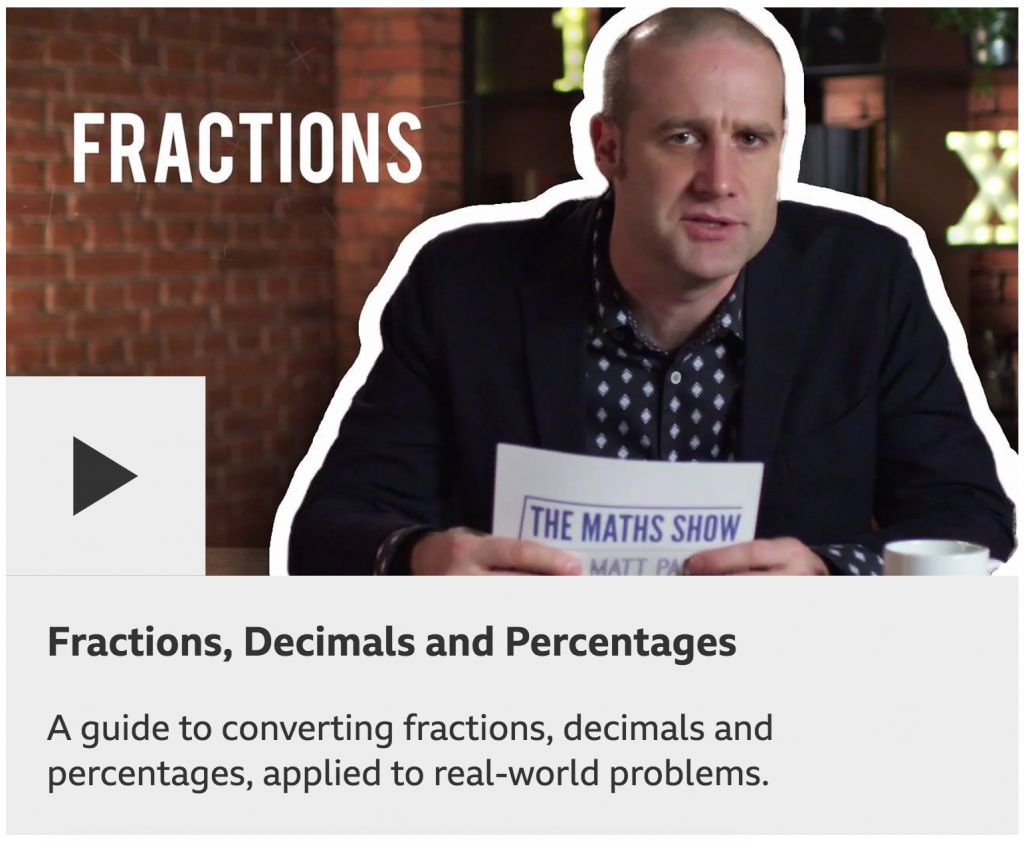
Stand-up mathematician and friend of the site Matt Parker has produced a set of videos for teacher resource site BBC Teach, aimed at GCSE maths students.

Stand-up mathematician and friend of the site Matt Parker has produced a set of videos for teacher resource site BBC Teach, aimed at GCSE maths students.
The BBC are reporting that plans to change key subjects, including mathematics, from the current GCSE assessment system to a new, tougher ‘English Baccalaureate Certificate’ and to have a single exam board for each subject are “to be abandoned”.
Further information: Planned switch from GCSEs to Baccalaureate in England ‘abandoned’ at BBC News.
Recent reports from Ofqual and Mathematics in Education and Industry (MEI) highlight positives in the depth of content and takeup of A-Level Mathematics and Further Mathematics but an Ofsted report finds problems in earlier stage mathematics teaching.
Barnie Choudhury, principal lecturer at the University of Lincoln’s school of journalism with a background in investigative journalist, is taking the GCSE examinations in an attempt to “test whether or not the allegations made in recent years that exams had been ‘dumbed down’ were true”. An article in the Lincolnshire Echo says:
He sat his O-level in maths in 1981 and came out with a B grade.
If he does not match this when the GCSE grades are revealed in August, Mr Choudhury believes this will prove that exams today are harder.
Flaws in the experimental methodology left as an exercise for the reader, although Mr Choudhury hints at some when he is quoted saying:
A part of me is hoping that journalists are right – that exams are easier. But I see my daughter’s mathematics work now and I don’t know any of it. So I thought if she was going through the pain, then so would I and I’d see for myself how tough the exams are.
But now I’m wishing I hadn’t started. It has not been dumbed down at all – if anything, I’m finding it more difficult the second time around, even though I’m older and I’ve sat lots of exams in my life. Maybe my brain has slowed down but it really is difficult.
Source: University of Lincoln lecturer inspired to take maths GSCE by his children.
The UK’s national ambition to lead in new high-tech industries is threatened by an alarmingly widespread cultural apathy to maths in this country.
Maths is seen by too many students as something to be endured rather than enjoyed.
…
It is a cultural and an educational problem.
Our experts in education note that young people don’t see maths as relevant to their lives or ambitions.
For the majority of young people, maths is a meaningless subject, with 85 per cent of students quitting it as soon as they are allowed. For too many, maths is just a series of disconnected techniques and formulae. It seems dry and academic.
…
We urgently need a new approach that makes innumeracy as unacceptable as illiteracy.
These are not new or surprising sentiments, except that they come from Rod Bristow who, as head of Pearson UK, describes himself in an opinion piece in the Telegraph numeracy campaign as “responsible for one of the biggest exam boards in Britain”. Edexcel, he says, “sets and marks one million mathematics GCSEs, International GCSEs and A-levels every year”.
Many people see the problems Rod describes as being driven by the assessment system, so what does he propose to do about it? “With other exam boards,” he says, “we are already in discussion with the exams regulator Ofqual about how we can further strengthen maths GCSEs”. He gives the following recommendations:
Where young people don’t gain a C grade first time at GCSE, the education system must offer new courses which encourage them to continue with maths.
We can do this by associating maths more closely with other academic disciplines such as the pure and social sciences.
Universities should make mathematical literacy a clearer requirement for entry to those majority of courses which will use it.
We must show how maths is applied in careers from construction to web design.
He also recommends learning through serious games.
Engaging computer games encourage the ‘learning by doing’ essential to building numeracy skills, and we should make clear the role of maths in producing those games in the first place.
…
If we want our young people to excel and lead the way internationally in maths, we must repurpose our maths teaching, learning and our exams, and use the tools of the future to change the ugly sister culture around mathematics.
Source: Numeracy Campaign: ‘maths curriculum failing to meet the needs of the 21st century’.